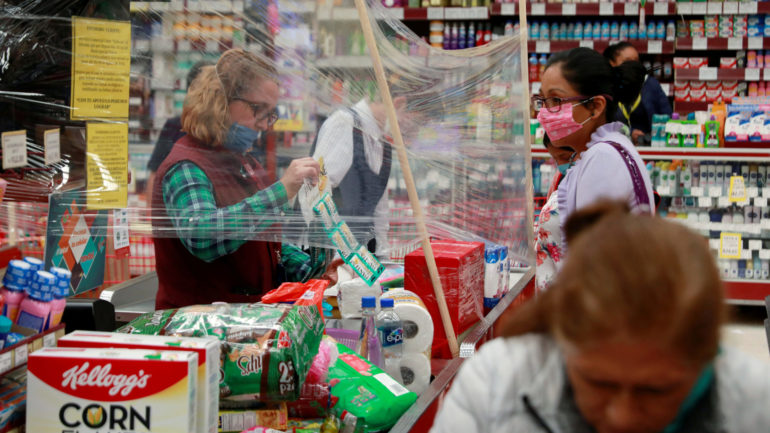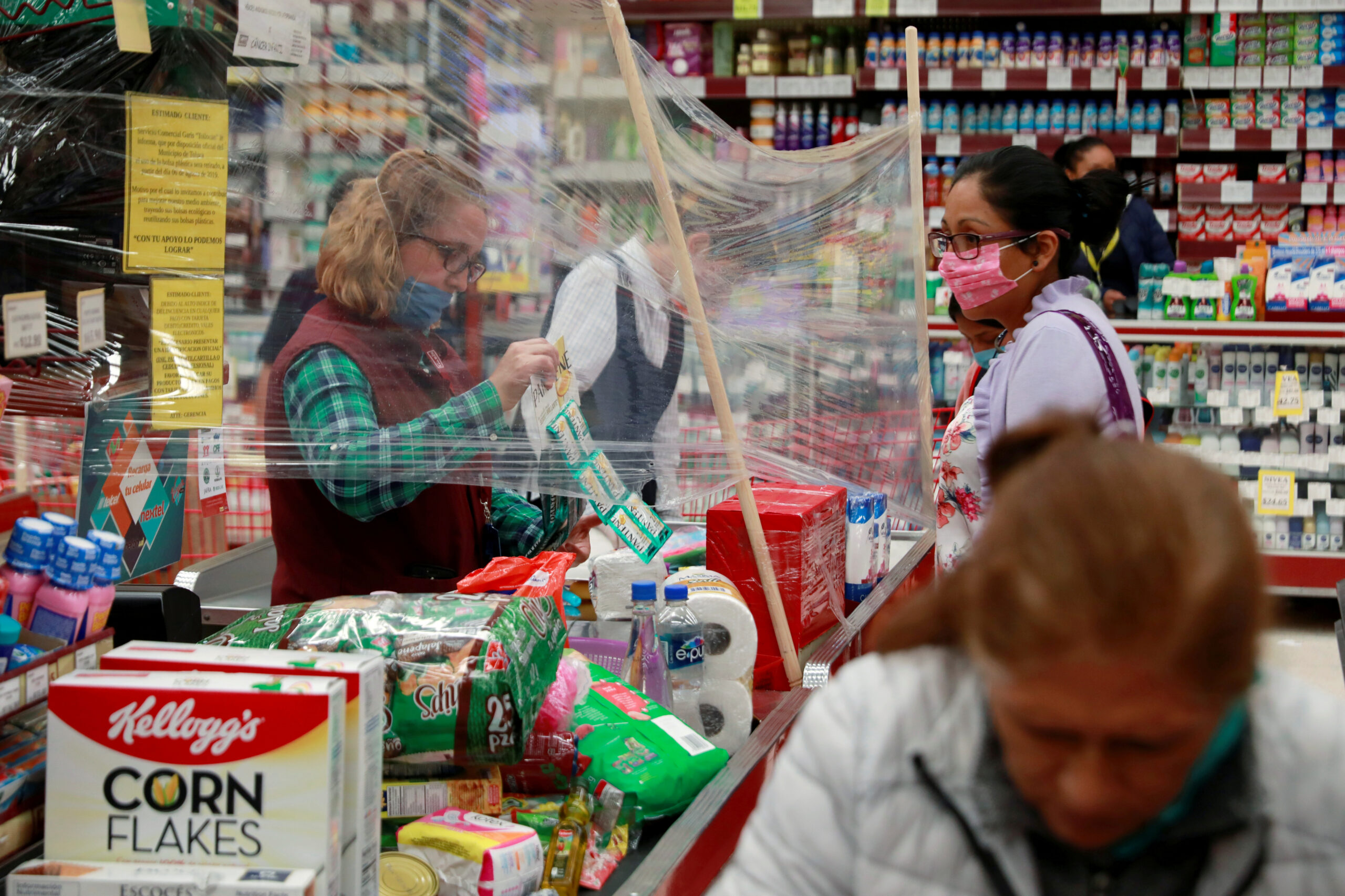
Kajal Mangesh Pawar
The country is seeing a surge in part-time student workers in grocery stores during the COVID-19 pandemic.
“Many employees don’t show up because of fear, especially the ones with children. Everyone who takes up shifts now are mainly students,” said Reveti Kuche, a part-time front-end cashier at Loblaws.
Kuche is an international student in the Marketing Management program at Algonquin College in Ottawa.
Grocery stores are taking measures to enhance safety of their workers.
Loblaws, among others, is restricting the first hour of the shopping day for seniors and people who need assistance, according to a media release issued by Galen Weston, executive chairman of Loblaw Companies Ltd. .
Many stores are enforcing social distancing with marked spaces on the floor at checkout to avoid people crowding at a place.
Metro, Loblaws and Sobeys have installed physical barriers at their checkouts to maintain a distance between cashiers and customers. Sobeys initiated one-way aisles to prevent congestion.
A number of grocery firms, like Loblaws and Sobeys, are using plexiglass shields at checkouts and are trying to acquire more personal protective equipment.
“I do feel safe at my workplace and I think our safety is being considered, with the glass partitions and social distancing measures being strictly employed,” Kuche said.
Grocery stores have limited the amount of high-demand products such as paper products that people can buy at a time because of long queues and panic buying.
“First time I’ve lived through a panic-storming of grocery stores. All I wanted was apples and yogurt. Forty-five-minute wait to cash out at Loblaws. No thanks,” tweeted David J. Doorey, an associate professor of labour and employment law at York University.
Loblaws’s app PC Optimum also tweeted a video of Galen G. Weston, CEO addressing customers on the issue.
“Canadians have called on us as an essential service and we accept the challenge, “ said Weston in the video.
Even with the prevalent safety measures, Kuche said employees undergo a feeling of fear and anxiety going to work under current conditions.
“My home and family is 12,000 kilometres away, of course,” Kuche said. “I am always scared for their safety and even mine. But what can I do?
“Being in another country, I need the money so I need to work,” she said.
Kuche said her family does not want her to continue working but she does not want to financially burden her family anymore.
“I am scared while I leave for work, as you don’t know what kind of interaction you will have with whom and you are not sure if the person is affected or not,” said Gundeep Singh, a part-time cashier at Walmart and student at Humber’s North campus.
Stores should also provide masks to cashiers and other employees in order to ensure safety, he said.
After Loblaws announced its first confirmed case of an employee who contracted COVID-19 in Oshawa, the company released a statement which said the company would be transparent and communicate with customers who shopped at the store.
“We will close immediately if we are informed of a colleague testing positive,” the statement read.
Health Canada recommends rubbing and cleaning fruits and vegetables under fresh cool running water.
“There is currently no evidence that food is a likely source or route of transmission of COVID-19,” the Canadian Food Inspection Agency said.

